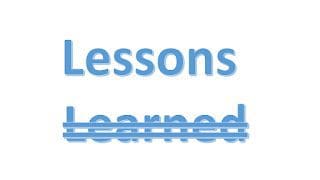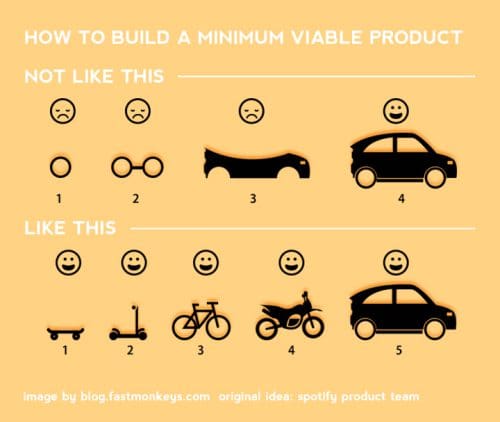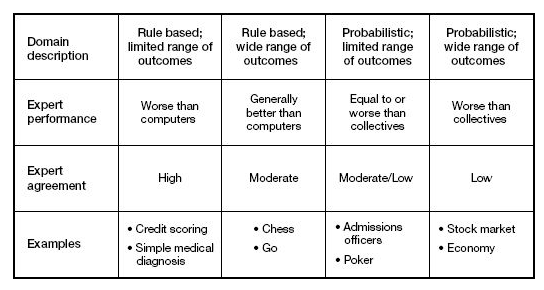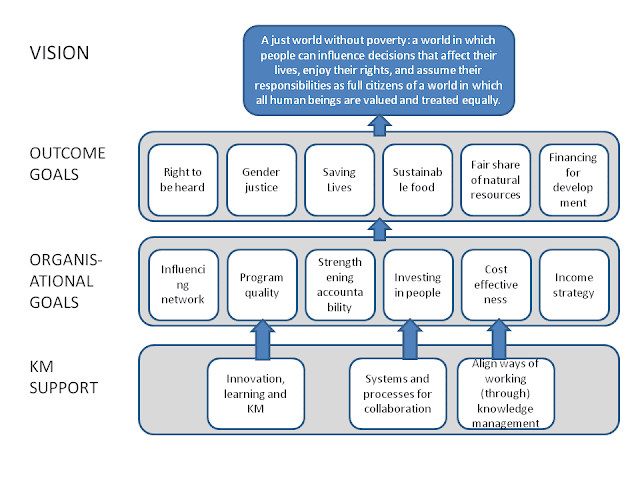
Favorite How do Simple Rules help share or prompt knowledge in a complex world? Image from wikimedia commons Donald Sull and Kathleen Eisenhardt’s book “Simple Rules: How to Thrive in a Complex World” describes the development of what we might call heuristics, or “rules of thumb” as simple ways to
Read More
 Shared by Nick Milton September 2, 2020
Shared by Nick Milton September 2, 2020

Favorite If the culture of your organisation makes Knowledge Management difficult, what do you do? Seek to change the culture first? Or work your way around the different cultural elements? Change Alley sign by Matt Brown on Flickr Introducing KM not only involves introducing new roles, processes and technologies, it
Read More
 Shared by Nick Milton September 1, 2020
Shared by Nick Milton September 1, 2020

Favorite Many Knowledge Management initiatives fail to get going. Others succeed initially, yet fail once the KM implementation team is removed. And yet some are sustained for the long term, with KM becoming “part of the way we work”. What do these organisations do differently? Chart from the Knoco KM
Read More
 Shared by Nick Milton August 27, 2020
Shared by Nick Milton August 27, 2020

Favorite Imagine you have identified some lessons or new knowledge within a work team. How do you pass them on? There are 8 different contexts which determine how you might approach this. I am a great believer in tailoring your approach to circumstances, and the circumstances you need to consider
Read More
 Shared by Nick Milton August 26, 2020
Shared by Nick Milton August 26, 2020

Favorite Sometimes you need to change the terminology in order to change the way people think. Maybe we should copy the Army, and do this with the commonly misused phrase “lessons learned.” The term “lessons learned” is in common usage, but can mask the fact that lessons are often identified
Read More
 Shared by Nick Milton August 25, 2020
Shared by Nick Milton August 25, 2020

Favorite There is a concept in lean manufacturing known as the “minimum viable product”. This is a very valuable concept to bear in mind when introducing Knowledge Management to an organisation Image from blog.fastmonkeys.com The concept of the Minimum Viable Product (MVP) is generally taken as being the simplest and
Read More
 Shared by Nick Milton August 24, 2020
Shared by Nick Milton August 24, 2020

Favorite What happens in a world where the crowd, or the machine, is smarter than the expert? The excellent book Think Twice: Harnessing the Power of Counterintuition by Michael Mauboussin, was that “as networks harness the wisdom of crowds, the ability of experts to add value in their predictions is steadily declining.
Read More
 Shared by Nick Milton August 21, 2020
Shared by Nick Milton August 21, 2020

Favorite The Curse of Knowledge is a real problem when it comes to knowledge sharing; trying to transfer knowledge to the Unknown User. It’s also one of the reasons why lesson management systems are full of mushy motherhoods and useless bullet points. Curses!!! Foiled Again.uploaded to Flickr by Joe Shlabotnik The
Read More
 Shared by Nick Milton August 19, 2020
Shared by Nick Milton August 19, 2020

Favorite It’s not often you see a public review of a KM Strategy – here is a good example. Image by Stefan Erschwendner, on Flickr I blogged yesterday about Oxfam’s KM strategy. Oxfam referred to knowledge and to knowledge management several times in their 2013 to 2019 strategic plan, which allowed
Read More
 Shared by Nick Milton August 18, 2020
Shared by Nick Milton August 18, 2020

Favorite A KM strategy map is a great way to visually connect KM activity and organisational strategy. Here is an example. Last week I blogged about Knowledge Management at Oxfam, and shared their Rights and Responsibilities table. In today’s post I use Oxfam again, as a demonstration of how to
Read More
 Shared by Nick Milton August 17, 2020
Shared by Nick Milton August 17, 2020
![]() Shared by Nick Milton September 2, 2020
Shared by Nick Milton September 2, 2020









